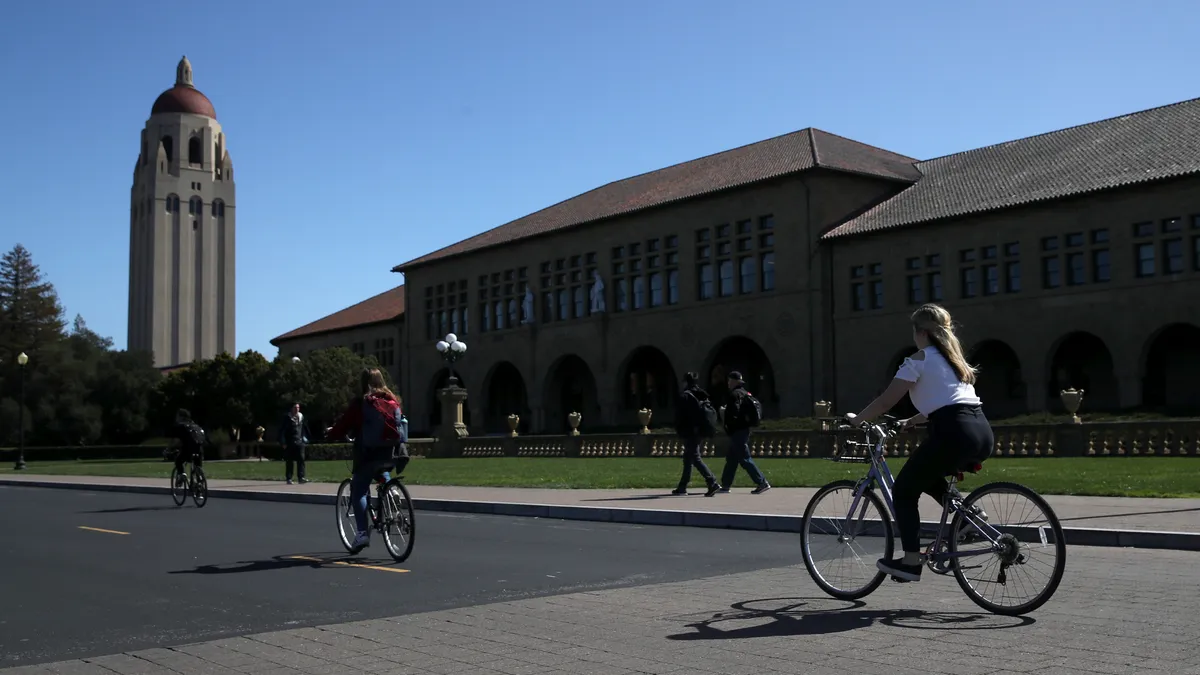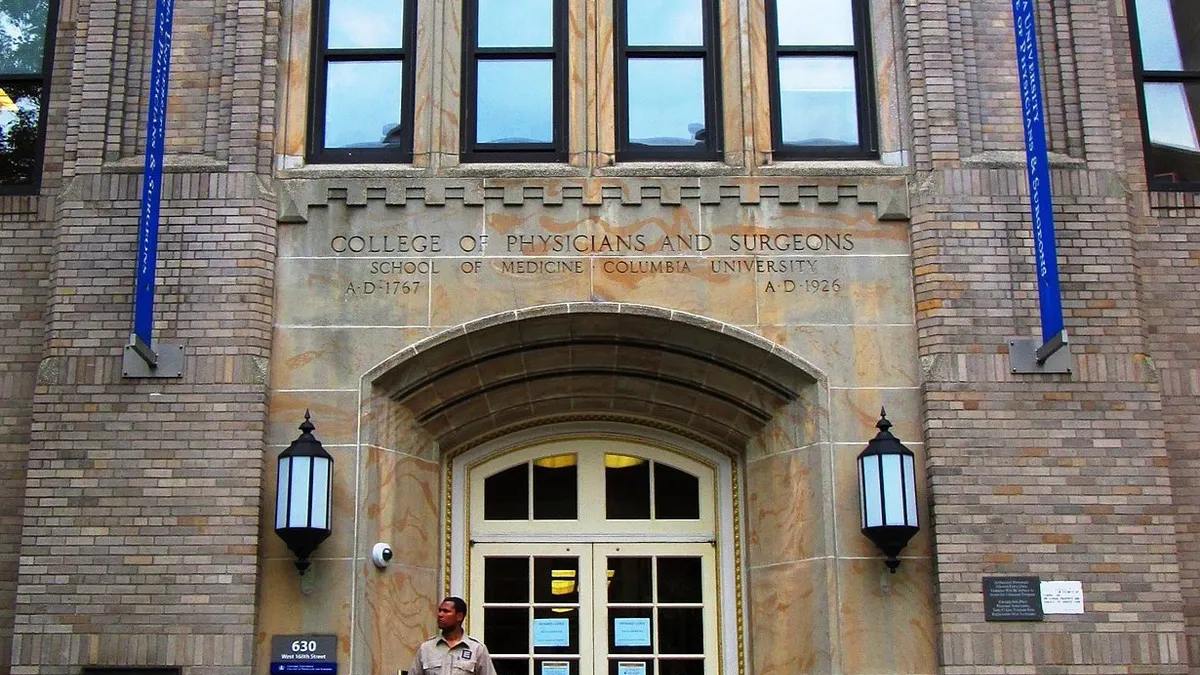Dive Brief:
- Advocacy group National Student Legal Defense Network sued the University of Maryland Global Campus on Tuesday over an “incentivized, enrollment-based” pay agreement with Coursera for marketing, curriculum development and other services on select degree programs.
- Filed in Washington, D.C. Superior Court, the complaint alleges that UMGC violated the district's consumer protection laws by saying it does not tie compensation to enrollment, though its agreement with Coursera allows for it. A UMGC spokesperson said the university does not comment on pending litigation.
- The complaint also attacks as “unlawful” a 2011 carveout to a federal ban on colleges providing incentive compensation to third parties that provide recruiting help.
Dive Insight:
In its complaint, Student Defense pointed to UMGC's policy prohibiting "the payment of any commission, bonus, inducement, or other incentive payment based in any part, directly or indirectly, upon success in securing enrollments.” The university said this ban is in accordance with federal laws and regulations.
Primarily a MOOC provider, Coursera has a small but growing OPM business, with the segment accounting for $14.3 million in revenue out of $170.3 million during the company’s second quarter of 2024. Coursera collects fees from its university clients based on a share of their programs’ tuition revenue, according to the company.
UMGC’s master agreement with Coursera includes sections about fees invoiced by the MOOC provider in response to revenue reports, according to documents cited by Student Defense.
“UMGC subsequently paid Coursera these Service Fees, which are based directly and exclusively on success in securing student enrollments” in certain programs, including two cybersecurity degrees, the complaint alleges.
The group argued that the misalignment of UMGC’s stated policies and Coursera contract amount to “unfair and deceptive trade practices.”
But Student Defense goes a step further and attacks the legal underpinnings for such arrangements.
Specifically, the complaint invoked 2011 guidance from the Obama-era Education Department that allowed colleges to enter revenue-sharing agreements with companies that provide recruiting help — so long as it is bundled with multiple services.
Revenue sharing and incentive pay arrangements based on student enrollment at federally-funded institutions were broadly banned in a 1990s revision to the federal Higher Education Act. The 2011 guidance opened the doors to online program manager firms and MOOC providers to strike tuition-share agreements with colleges.
The Education Department is currently reviewing the 2011 guidance, as attention on the issue grows in the wake of OPM 2U’s recent Chapter 11 bankruptcy.
“The Bundled Services Exception is unlawful because it directly contradicts the express, unambiguous language of the HEA and the Department’s own regulations implementing the statutory Incentive Compensation Ban,” Student Defense said in its complaint.
Coursera is aware of the criticisms against the bundled services exception, as well as its potentially vulnerable legal status.
In its 10-K from 2023, the company notes that “because the bundled services rule was promulgated by agency guidance through the [Dear Colleague letter] and is not codified by statute or regulation, there is risk that the exception could be altered or removed without prior notice, public comment period, or other administrative procedural requirements that accompany formal agency rulemaking.”
While Student Defense calls incentive pay unlawful, its lawsuit doesn’t include any claims under the Higher Education Act. Rather, it sticks to claims under D.C.’s consumer protection laws.














